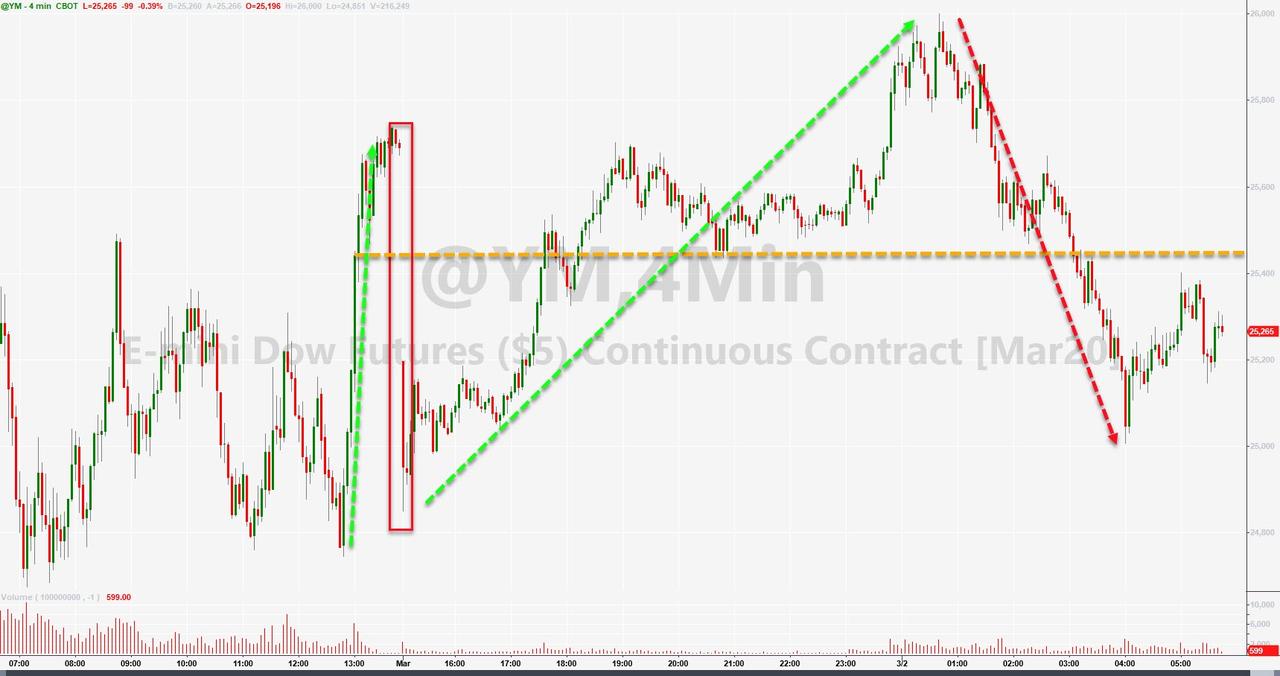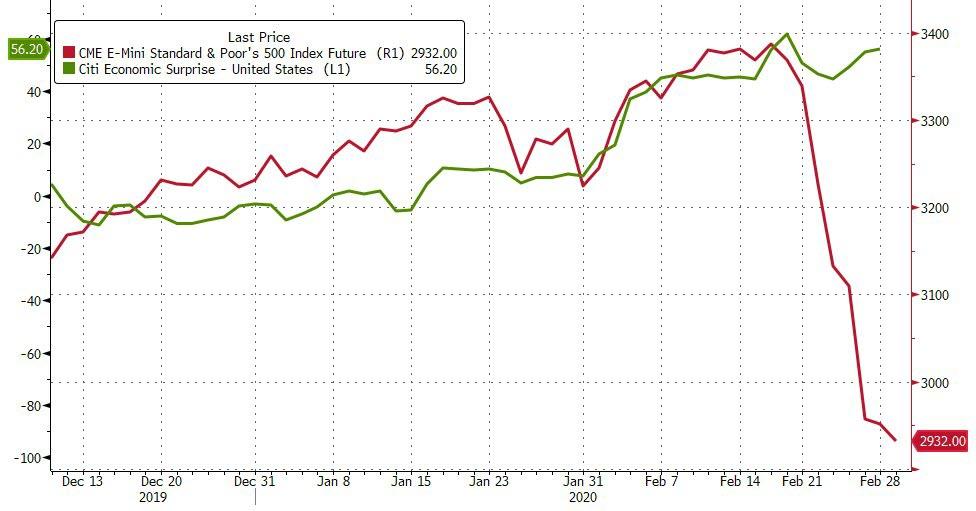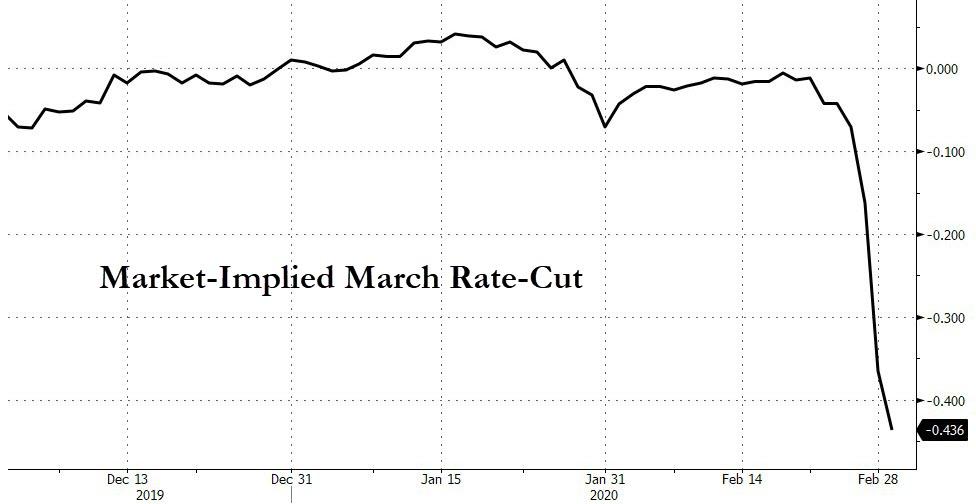“Monitoring Developments?” – Fed Caught Between Collapsing Market & “Strong Economy”
Authored by Richard Breslow via Bloomberg,
The markets’ reaction to the latest economic news is indeed odd. But entirely predictable. The Chinese PMIs were horrendous. How could that possibly have come as a shock? And on what basis should anyone have been relying on economist forecasts to decide whether it was a miss or a beat? Anyone surprised that China’s economy has taken a serious hit, is being delusional. Probably the same ones who where assuring us of the impending V-shaped recovery.
Perhaps less surprising was the immediate reaction to the 4 1/2-liner from Fed Chair Jerome Powell letting us know that he is “monitoring developments.” Isn’t that what he is meant to be doing? And is it a surprise that their reaction function is as predictable as it has always been? Blame it on risks or headwinds while keeping a vigilant eye on the level of the S&P 500. But, I guess that’s what it takes.
There is absolutely nothing wrong with cutting rates when appropriate. Nor are insurance cuts inappropriate.
But we were treated last week to a long litany of assurances:
-
that “the fundamentals of the U.S. economy remain strong” (Powell),
-
“I wouldn’t want to to prejudge the March meeting” (Bullard),
-
“there is some risk, but basically I think the U.S. outlook looks pretty good” (Yellen),
-
“I think it pays to be patient” (Kaplan).
At least Italy’s leaders weren’t assuring everyone that they feltsanguine before announcing yesterday emergency measures to combat the economic ill-effects they are experiencing. And to their credit, they are proposing to implement fiscal measures that are actually meant to reach businesses directly rather than relying on the old trickle-down method.
We’ve now moved to not merely assuming a March cut is baked in the cake — and maybe one bigger than 25 basis points– to debating if they can afford to wait that long and whether they should pull the trigger on an emergency basis.
And do so in tandem with the rest of the world’s central banks. We won’t be shocked and we won’t be awed. Cooperation is a good thing. Would that the powers-that-be could do it under more circumstances.
The Bank of Canada has its March meeting on Wednesday. Futures pricing has them going. Before Powell’s statement economists were undecided. Watch whether that changes rapidly. I suspect we move from talk of a tight housing market and financial stability considerations straight to discussions about not wanting to disappoint market expectations.
As far as U.S. numbers are concerned, it seems likely that any weakness will be taken as evidence that the economy is slowing and any strength as dated information. In reality, that isn’t necessarily true, but if rate cuts are on offer, that will have to be the interpretation. Especially, if ISM disappoints and no one wants to wait around for an expected robust non-farm payrolls to throw a spanner in the lower-rates works.
There is the usual long list of Fed speakers on the schedule this week. The extent to which they change their messaging will be well worth listening for. What a difference a week makes. This morning the OECD lowered its global growth forecast to what would be the lowest since 2009. The BOJ and BOE have waded in with pledges of support. A lot of people are relearning that globalization isn’t such a bad idea.
Tyler Durden
Mon, 03/02/2020 – 08:55
via ZeroHedge News https://ift.tt/2PDbXwa Tyler Durden


